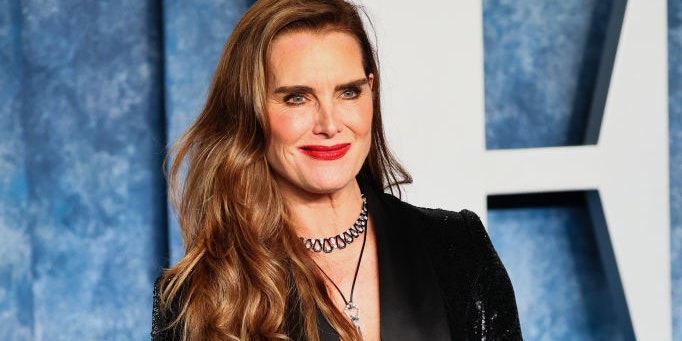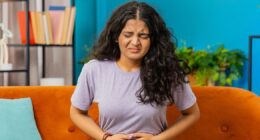In 2003, Brooke Shields gave birth to her first child, Rowan Francis—but, to her surprise, she didn’t “feel at all joyful” when she welcomed her daughter. Instead, she was overwhelmed, felt disconnected from her baby, and “feelings of doom” and suicidal thoughts crept in. She was ultimately diagnosed with postpartum depression (PPD) and prescribed an antidepressant along with weekly therapy sessions, she wrote in a New York Times op-ed published in 2005.
Nearly 20 years later, Kelly Clarkson is thanking Shields for being so open about what she went through—especially during a time when discussing mental health was far more stigmatized (even though we still have a long way to go with that). “I have a lot of friends who have suffered from postpartum depression,” Clarkson recently told Shields on The Kelly Clarkson Show. “And people don’t understand it if you’ve never experienced it.”
PPD isn’t just the “baby blues,” or the feelings of sadness that often develop after childbirth, typically within a few days after delivery. Around one in nine people who give birth develop PPD, a mental health condition that’s triggered by extreme hormonal fluctuations during and after pregnancy, as well as other physical and emotional changes that occur after giving birth, according to the Office on Women’s Health.
PPD is typically characterized by severe mental health symptoms that last longer than two weeks after giving birth, like feelings of depression, anxiety, detachment toward the baby, guilt or worthlessness, insomnia, and suicidal ideation, among others. (On August 4, the Food and Drug Administration approved the first prescription pill to treat the condition.)
READ RELATED: What It Looks Like When Trans Kids Are Simply Allowed to Play Sports
Although Clarkson, who has two children of her own, didn’t experience PPD, she admired Shields’ honesty about hers, which didn’t come without public resistance. “I love how, not only you were open about it, but then people came against you about it, and you ended up writing an op-ed,” the singer said. “It’s so important because not a lot of people have a voice for that, and you have a giant spotlight on you. So for you to not only stand up for yourself, but stand up for all those other women, it was incredible.”
Shields insisted that she felt like she had to speak up. “I don’t know if it was courageous, but it was necessary,” she said. “And I think that, as a mother of a daughter, at the time, now two daughters, I owe it to them to tell the truth about something that is so frightening. So many people suffer. Untreated, [PPD] can be devastating.”
In an April interview on the WTF With Marc Maron podcast, Shields recalled ceasing her medication “cold turkey” after she started feeling better. “I thought I was going to drive my car into the wall on the 405,” she said, referring to a freeway in California, per Page Six. She quickly called her doctor, who told her to resume her prescription “immediately.”






